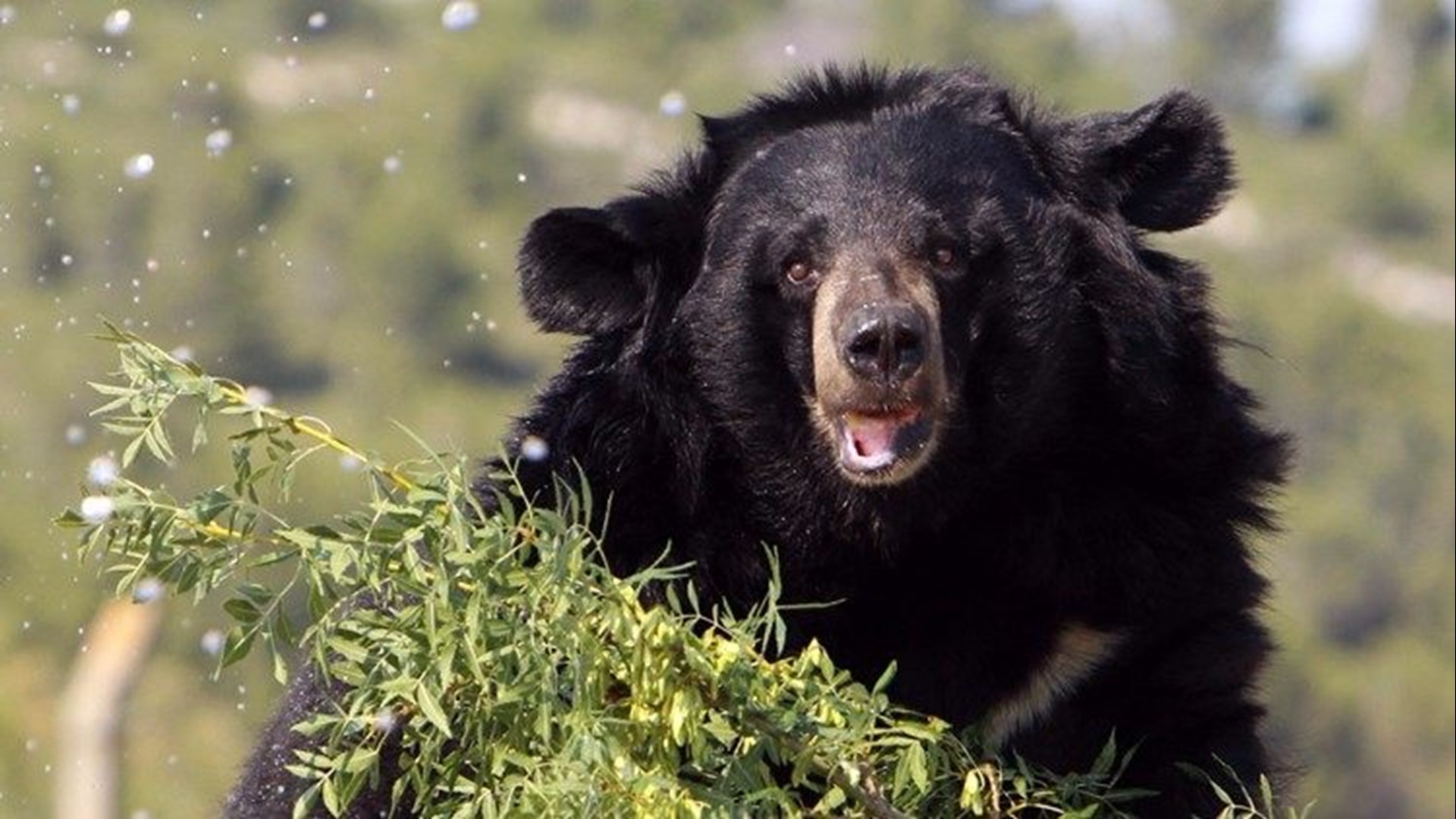Colorado Parks and Wildlife (CPW) officers have euthanized a bear that it says DNA tests confirm bit a restaurant manager who was trying to haze it out of a dumpster.
The attack happened on Sunday, according to a news release from CPW, and the bear was found in Aspen town limits of Monday. DNA tests available Thursday were able to confirm it was the correct bear.
In addition, CPW said the euthanized animal matched the description of the one provided by the victim, and the bear’s teeth matched the bite marks on the restaurant manager. It was euthanized because of its aggressive behavior and proximity to people.
RELATED: Proposed ordinance would require bear-resistant trash cans west of I-25 in Colorado Springs
"A bear this size and unafraid of humans could have easily killed a person with little effort," Area Wildlife Manager Matt Yamashita said. "It's unfortunate this bear had to die for this reason, especially when you consider it was totally preventable. Based on our experience, there was no chance this bear could be rehabilitated after it bit a person."
According to CPW, there have been three confirmed bear attacks on humans this summer, and “at least two or three” calls a day from people who have encountered bears either inside their homes or trying to break in.
In the news release, Yamashita said this is a busier year than usual, and that unless Coloradans take more precautions, someone could be seriously injured or killed by a bear.
"This is not sustainable," he said. "This is in no way a normal, acceptable situation. Yes, the habitat around Aspen is perfect for bears, but that should not be an excuse to let them feed out of your dumpster, your trash can or your pantry. Consider this a warning - people need to understand how serious and dangerous this is, accept their responsibility, then take action immediately."
These are CPW's tips to prevent bear conflicts:
Keep Bears Out
Close and lock all first-floor windows and doors when you leave the house and at night before you go to bed.
Install sturdy grates or bars on windows if you must leave them open.
Keep car doors and windows closed and locked if you park outside. Make sure there’s nothing with an odor in your vehicle, including food wrappers, candy, gum, air fresheners, trash, lotions and lip balms.
Close and lock garage doors and windows at night and when you’re not home; garage doors should be down if you are in the house but not outside.
Install extra-sturdy doors if you have a freezer, refrigerator, pet food, birdseed, or other attractants stored in your garage.
Remove any tree limbs that might provide access to upper-level decks and windows.
Replace exterior lever-style door handles with good quality round door knobs that bears can’t pull or push open.
Get Rid of Attractants
Don’t leave trash out overnight unless it’s in an approved bear-proof enclosure or container. Be sure to research all local ordinances and regulations if vacationing.
Clean your trash cans regularly to remove residual odors.
Don’t store food of any kind in an unlocked garage, flimsy shed, on or under your deck.
Don’t leave anything with an odor outside, near open windows or in your vehicle, even if you’re home. That includes scented candles, air fresheners, lip balms and lotions.
Clean-up thoroughly after picnics in the yard or on the deck, cleaning your BBQ grills after each use. Don't allow food odors to linger.
Bird feeders are a major bear attractant. Only use bird feeders in winter, when bears are hibernating.
If you have fruit trees, pick fruit before it gets too ripe. Don't allow fruit to rot on the ground. Electric fences provide good protection for small orchards.
Teach Bears to Remain Wild
If a bear comes close to your home, scare it away. Loud noises like a firm yell, clapping your hands, banging on pots and pans or blowing an air horn sends most bears running.
Utilize electric fencing, unwelcome mats and scent deterrents like ammonia to teach bears that your property is not bear-friendly.
If a bear enters your home, open doors and windows so it can leave the same way it got in. Don’t approach the bear or block escape routes.
Never approach a bear. If a bear won’t leave, call your local CPW office or Colorado State Patrol.
If a bear presents an immediate threat to human safety, call 911.
For more information on the best bearproofing methods for your home, visit Colorado Parks and Wildlife’s Living with Bears page or visit cpw.state.co.us/bears.
SUGGESTED VIDEOS | Local stories from 9NEWS

